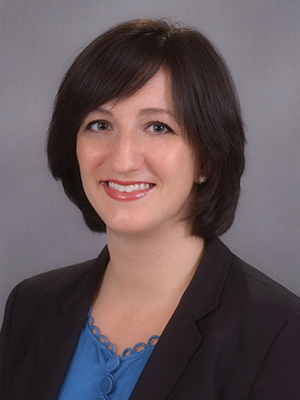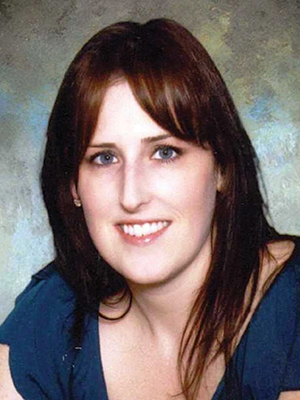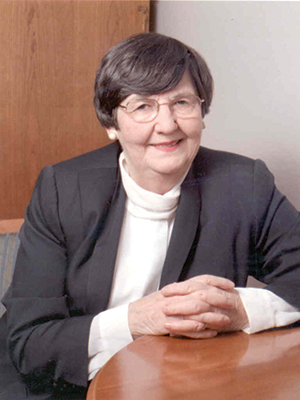I am caring for a family member with cancer. I’m worried that I, or my children, will get this disease. Do you recommend genetic testing?

Sarah Charles, Genetic Counselor, Jefferson Kimmel Cancer Center Network in Philadelphia
SARAH CHARLES: Before getting a genetic test, sit down with a trusted physician or genetic counselor, who can take a detailed family and medical history and determine if a genetic test is available that can explain why cancer is in your family.
Most cancer is not hereditary. Because cancer is a common disease, most families include a relative with cancer simply by chance. However, in some families a susceptibility to certain types of cancer is inherited, or passed from parent to child due to a specific genetic condition. Hallmarks of families with hereditary cancer include multiple affected family members across generations, early age of onset, and multiple primary or related tumors, either in the same person or family. The most common forms of inherited cancer are hereditary breast-ovarian cancer syndrome and hereditary colon cancer. Some endocrine and rare forms of cancer can also be hereditary.
The timing has to be right for a genetic test. If it can save someone’s life, of course it’s an important thing to consider. However, if a person is overwhelmed by the potential results, then it might not be the right time. The most common [reason] for referral for a genetic test is a person or family with early onset breast cancer—to see if there’s a mutation in the BRCA1 or BRCA2 genes. Think of the actress Christina Applegate. She had a very early cancer that might have been treated less aggressively if oncologists did not know that both she and her mother had a mutation in the BRCA1 gene.
Genetic testing is most likely to be informative if we can first test the family member who has already been diagnosed with cancer. Finding cancer predisposition mutations is relatively difficult to do—it can be like looking for a needle in a haystack. In the case of children, a pediatrician generally would not order a genetic test until adulthood. With breast cancer, a child would not be tested until 10 years before the earliest age of onset in the family, or age 25—whichever comes first.
Not all genetic tests have established medical value. For instance, there’s genetic testing marketed for prostate cancer, but its usefulness is viewed somewhat skeptically.
GENETIC TESTING RESOURCES // NCI Cancer Genetics Services Directory lists professionals who provide cancer risk assessment, genetic counseling, genetic susceptibility testing and related services. // AACR-SU2C Clinical Trials Finder and AACR Clinical Trials Navigators can be used to find clinical trials for hereditary cancers. 1-877-769-4829 // ClinicalTrials.gov can be used to find clinical trials for hereditary cancers.
How can I find help paying for cancer treatment or managing my bills?

Erin Moaratty, Chief of External Communications, Patient Advocate Foundation
ERIN MOARATTY: Even patients who are fully insured find that a lot of out-of-pocket costs fall on them as a result of copays, co-insurance, deductibles, plan limitations and exclusions. If you find that you are unable to pay your bills, I would highly recommend that you talk to the hospitals or facilities where you received treatment—there may be a charity program available. You don’t want too much time to pass, because once a bill goes to collection, most hospitals will not pull it out.
A lump-sum or prompt-pay discount also may be an option. This is when the billed amount is reduced by the treating facility if paid in full by an agreed-upon deadline. If a medical facility awards you a discount or a full charity write-off, take the letter of award to your treating doctors and laboratories to discuss the possibility of their following suit.
Since the Patient Protection and Affordable Care Act (PPACA) became law in March 2010, patients facing large medical bills as a result of their illnesses also benefit from the elimination of lifetime [benefit] caps on insurance plans. For cancer patients in particular, it is not uncommon to reach lifetime caps due to the high cost of treatment.
The law also prohibits insurers from denying coverage of pre-existing health conditions when a child is diagnosed with a medical condition prior to his or her 19th birthday. In 2014, the same rules will apply to adults. In the meantime, every state is required to offer a pre-existing condition insurance plan (PCIP) for those unable to secure insurance coverage elsewhere. The cost of the plan varies depending on the state, your age and the plan you choose. For example, a PCIP extended plan for a 19- to 34-year-old in Arizona would cost $234 per month. The same plan for a 55-year-old would cost $749 per month. These plans, while not inexpensive, are far less costly than being uninsured and fully responsible for medical expenses.
If you’re no longer able to work after diagnosis and you’re the policyholder for your benefits, talk to your human resources department to see if you qualify for benefits such as disability or COBRA. Also, a reduction or loss of income may open the doors to local or federal programs for which you didn’t previously qualify. If a cancer diagnosis is aggressive or disabling enough, a patient may qualify for Social Security Disability benefits. This would supply a source of income and eventually make the patient eligible for Medicare and—depending on his or her financial qualifications—possibly Medicaid.
FINANCIAL RESOURCES FOR CANCER PATIENTS // Patient Advocate Foundation specializes in helping patients find financial assistance when they have a life-threatening, chronic or debilitating disease. 1-800-532-5274 // Patient Advocate Foundation Co-Pay Relief Program helps insured patients with the costs of prescription drug copays. 1-866-512-3861 // Partnership for Prescription Assistance helps patients without prescription drug coverage obtain their medications. 1-888-477-2669 // insureUStoday.org shows when provisions of the new health care law will take effect. // Pre-Existing Condition Insurance Plan provides details about the health care insurance plan for uninsured Americans who have pre-existing conditions. Those who qualify can apply on the website. 1-866-717-5826
I’ve been diagnosed with cancer, and I’m having a hard time coping. But friends keep telling me I need to be positive. Are feelings of depression and anxiety normal? Are they making my cancer worse?

Jimmie Holland, Psychiatrist, Memorial Sloan-Kettering Cancer Center in New York City
JIMMIE HOLLAND: Anybody would be distressed who has cancer. You can be normally distressed or just a little worried about the future and getting treatment. Or, you can be severely distressed, which would become something that looked like depression, significant anxiety or a crisis. People who are religious may also feel like they are in a spiritual crisis because they feel God has forsaken them.
These symptoms can happen to people who are psychologically healthy and then hit with having to cope with cancer. This is distress related to illness. Distress means: What’s going to happen to me? What’s going to happen to my kids? What’s going to happen with my job? Am I going to have to have surgery and get disfigured? Will I have pain? All of these things are encompassed in the word distress.
If you feel so upset that you’re not able to get to your regular treatment, that is clearly a sign that you need some help and should tell your doctor. However, we have no evidence that being depressed in and of itself has an impact on your illness. Being optimistic is good, being positive is good, but it’s not necessary to getting better. There has been a motto out in the public that said to beat cancer you have to be positive. There’s no evidence that being positive has some kind of beneficial impact, except that it may be a sign that you are coping. The important thing is that you’re able to adhere to your recommended treatment plan.
For patients with severe depression or anxiety, psycho-pharmaceuticals are available that interact safely with chemotherapy. These drugs help control anxiety and alleviate the symptoms of depression. They can also help people cope with their treatments. People should not look at it as a weakness that they need some help in coping. This perception really might change their opportunity to get their full treatment and to get their full outcome for themselves and their families.
PSYCHOLOGICAL AND EMOTIONAL SUPPORT // American Psychosocial Oncology Society has a toll-free helpline that helps cancer patients and caregivers locate counseling services in their communities. 1-866-276-7443 // CancerCare offers free counseling on the phone (or face-to-face in New York City, Long Island, New Jersey and Connecticut) with professional oncology social workers. 1-800-813-4673 // Cancer Support Community conducts online weekly support groups, facilitated by trained professionals, for those with cancer, caregivers, and those dealing with bereavement. 1-202-659-9709
Cancer Today magazine is free to cancer patients, survivors and caregivers who live in the U.S. Subscribe here to receive four issues per year.




